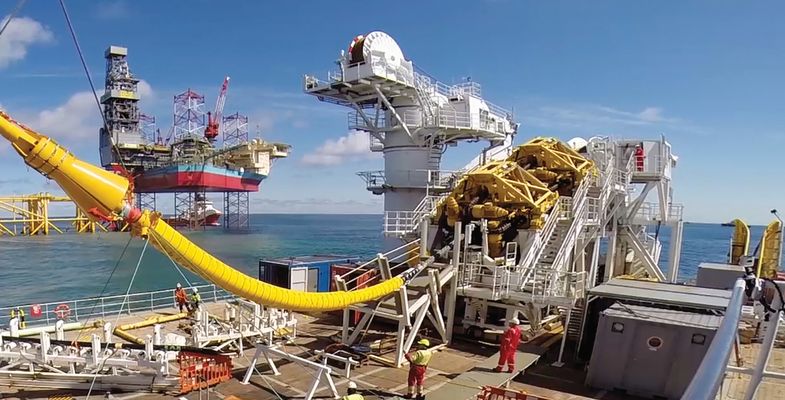IEC 60287 Thermal Rating Testing of Offshore Power Cables
The International Electrotechnical Commission (IEC) standard IEC 60287 is a crucial benchmark for ensuring the safety, reliability, and efficiency of power cables used in offshore platforms. This standard provides detailed guidelines for determining thermal ratings that are essential to prevent overheating and ensure long-term performance under various operating conditions.
Thermal rating tests conducted according to IEC 60287 involve subjecting the cable to specific environmental and loading conditions designed to mimic real-world scenarios. These tests help in assessing how much electrical current a cable can safely carry without exceeding its thermal limits, thus ensuring safe operation over extended periods.
The testing process begins with meticulous preparation of the specimen, which includes cleaning and conditioning it according to specified procedures outlined in IEC 60287. Once prepared, the cable is subjected to different loading conditions that simulate actual usage, including steady-state continuous load, short-time overcurrent, and temperature cycling.
Key instrumentation used during these tests includes thermocouples for monitoring temperatures at critical points along the length of the cable, power meters for measuring electrical parameters, and sophisticated data acquisition systems to record all relevant information. The results are then analyzed using advanced software tools that compare measured values against allowable limits specified in IEC 60287.
Compliance with this standard ensures not only regulatory requirements but also enhances overall safety by preventing potential failures due to excessive heat generation within the cable structure. For offshore applications where reliability is paramount, accurate thermal ratings are critical for maintaining consistent performance and extending the lifespan of expensive infrastructure investments.
The scope of IEC 60287 extends beyond just determining maximum allowable current levels; it also covers insulation resistance measurements, mechanical tests like tensile strength determinations, and environmental adaptability assessments. These comprehensive evaluations ensure that cables not only meet electrical performance expectations but are also robust enough to withstand harsh marine environments.
By adhering strictly to IEC 60287 standards during manufacturing processes and quality control checks, manufacturers can gain a competitive edge by producing high-quality products that comply with international regulations. Additionally, compliance enhances trust among customers who rely heavily on reliable electrical connections in critical sectors such as oil & gas exploration, wind farms, and other maritime operations.
Quality and Reliability Assurance
- Compliance ensures adherence to international standards.
- Reduces risks associated with overheating failures.
- Promotes safer operation in demanding environments.
The rigorous testing procedures mandated by IEC 60287 contribute significantly towards maintaining consistent product quality and reliability. By ensuring that each batch of cable meets stringent thermal rating requirements, manufacturers can build confidence among end users regarding the longevity and dependability of their products.
Competitive Advantage and Market Impact
- Gains market acceptance by meeting regulatory expectations.
- Attracts clients seeking safe, dependable solutions for critical infrastructure projects.
- Fosters long-term business relationships based on trust and reliability.
Adhering to IEC 60287 not only meets legal requirements but also positions companies as leaders in their fields. This commitment to quality fosters customer loyalty, enhances brand reputation, and opens up opportunities for expansion into new markets.





